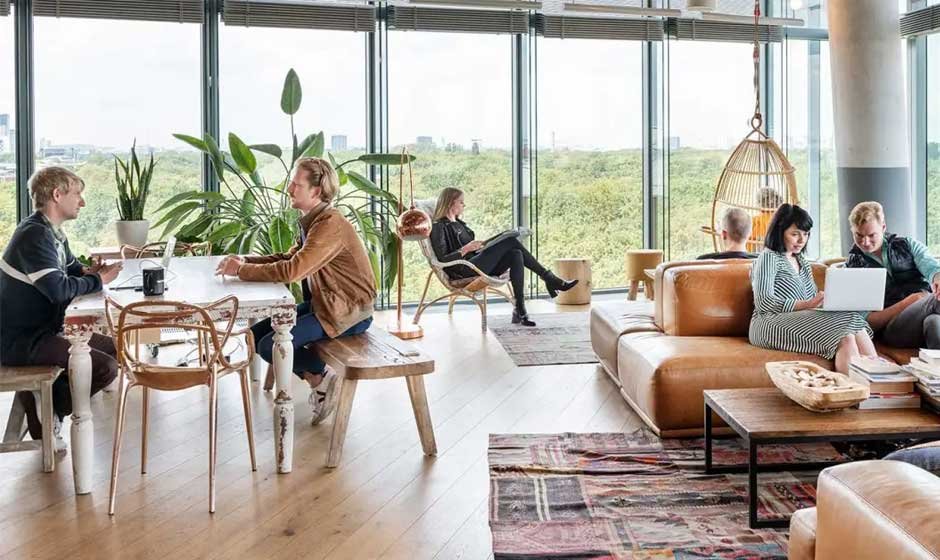In the ever-evolving world of urban living, the traditional office is quickly becoming a relic of the past. Coworking spaces are stepping in to redefine how professionals interact with their work and environment. These shared environments are more than just desks and Wi-Fi—they’re vibrant communities, offering flexibility, affordability, and a renewed sense of purpose. From freelancers and startups to corporate teams and hybrid workers, people across all industries are rethinking how and where they work. We will explore how coworking spaces are not only changing the physical nature of workspaces but also reshaping the rhythms, relationships, and resources of modern urban professional life.
Why Coworking Is Transforming the Urban Work Environment
Flexibility That Matches the Urban Pulse
City life is fast, unpredictable, and constantly shifting. Coworking spaces offer a kind of flexibility that traditional office leases simply can’t match. Monthly or even daily rental options, 24/7 access, and a variety of settings—from quiet corners to collaborative lounges—give urban professionals the ability to work in a way that suits their lifestyle. As more people blend personal and professional time, the ability to shift one’s work environment becomes a game changer.
Coworking spaces also eliminate the long-term financial commitments of conventional leases, which is particularly attractive in cities where rents are notoriously high. CMPND | Private Offices & Coworking Space exemplifies this shift, offering flexible arrangements that meet the needs of today’s fast-paced urban professionals. Similarly, The Work Project coworking space australia provides premium, design-led environments that cater to the dynamic needs of businesses and individuals. These spaces align with the pulse of the urban experience: diverse, dynamic, and fluid. Whether you’re working on a weekend project or need a space during a late-night burst of productivity, coworking environments adapt in ways that traditional offices cannot. This level of autonomy empowers professionals to take control over when and how they work, leading to greater productivity and job satisfaction.
Building Urban Communities Through Work
Isolation is a growing issue for professionals in dense urban areas, where everyone seems busy, but few feel truly connected. Coworking spaces are countering that by fostering real communities. These environments naturally create interactions among people from different industries, backgrounds, and roles. A graphic designer may share a coffee with a startup founder, or a writer may collaborate with a tech consultant seated nearby. These spaces don’t just offer places to work; they offer places to belong. Events, happy hours, seminars, and workshops help people find common ground and build professional relationships organically. This kind of unplanned collaboration rarely happens in traditional offices, which are often segmented by departments or titles.
Coworking communities thrive on openness and interaction, turning what could be a routine workday into a day of networking, inspiration, and potential partnerships. In many ways, coworking restores the social value of work, which has diminished in an increasingly digital and remote world.
Supporting Diverse Professional Paths
Urban economies are filled with diversity—not just in people, but in the kinds of work they do. Coworking spaces are equipped to support everyone from tech startups to solo consultants, remote teams, creatives, and nonprofits. Rather than force every worker into the same mold, these spaces offer tailored environments to suit varying needs. Phone booths for privacy, open tables for collaboration, and event spaces for launches or meetings help meet the unique demands of different professionals.
Additionally, coworking locations often include amenities like fitness centers, rooftop lounges, or daycare options, recognizing that urban workers are balancing much more than just work. This inclusive model makes coworking an ideal solution for people with unconventional schedules, side hustles, or portfolio careers. As people move away from single-track careers and embrace multiple roles at once, coworking provides a platform that accommodates growth, transition, and experimentation. It reflects the complexity of urban professional life in a way few traditional models can.
Catalyzing Innovation Through Environment
The design and atmosphere of coworking spaces play a key role in sparking innovation. Unlike bland cubicles or isolated home offices, these environments are intentionally crafted to inspire. Natural lighting, artistic decor, flexible seating arrangements, and stimulating common areas contribute to a sense of creativity and motivation. When people are surrounded by others who are building something, learning something, or exploring new ideas, it naturally encourages a more entrepreneurial mindset. This is particularly valuable in cities where innovation drives the local economy and competition is fierce.
Moreover, the physical structure of coworking spaces encourages movement and interaction, which has been shown to improve problem-solving and mental energy. Many urban professionals report increased focus and creativity when working in such environments. Coworking doesn’t just give people a place to work—it creates a setting that challenges them to think differently, collaborate broadly, and approach projects with renewed enthusiasm. That kind of spark can only come from spaces designed for human connection and inspiration.
Rethinking Work-Life Integration in the City
Traditional work-life balance assumes a clear line between personal and professional spheres, but urban living rarely allows for such divisions. Commutes are long, hours are flexible, and devices keep us connected at all times. Coworking spaces reflect this reality by helping professionals achieve a more integrated lifestyle. Many offer features like on-site gyms, cafes, wellness rooms, and childcare, turning the workplace into a multifunctional hub that supports all aspects of life.
For those living in smaller city apartments, coworking spaces provide a much-needed change of scenery and a clear boundary between home and work. This is vital not just for productivity, but also for mental health. By offering convenience and comfort, coworking environments reduce the friction between professional responsibilities and personal needs. They give urban workers the ability to structure their day in a way that feels sustainable. Whether you’re taking a break on the rooftop or squeezing in a yoga session, coworking spaces are redefining what it means to work well in the city.
Coworking spaces are far more than a passing trend in the professional landscape—they are a meaningful response to the complexities of urban life. With the demands of city living pushing people toward greater flexibility, connectivity, and innovation, these shared environments provide not only functional solutions but also a renewed sense of community and purpose. We have explored how coworking spaces are transforming the daily routines, professional relationships, and expectations of urban workers. By offering a blend of autonomy and connection, structure and flexibility, they are reshaping what it means to work in the modern city. As more people seek meaningful ways to engage with their careers and communities, coworking stands as a model of how the future of work can thrive in the heart of the urban world.










